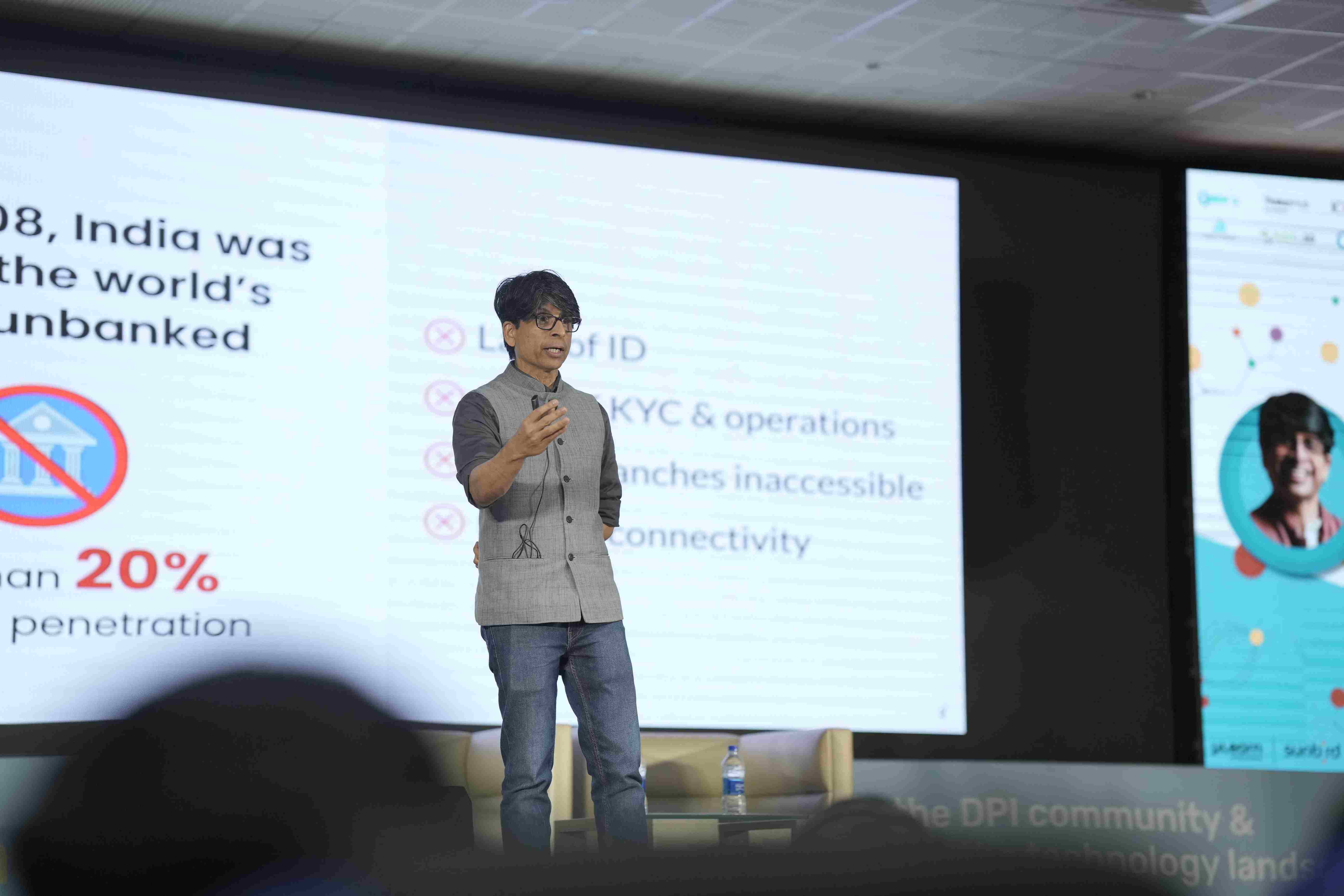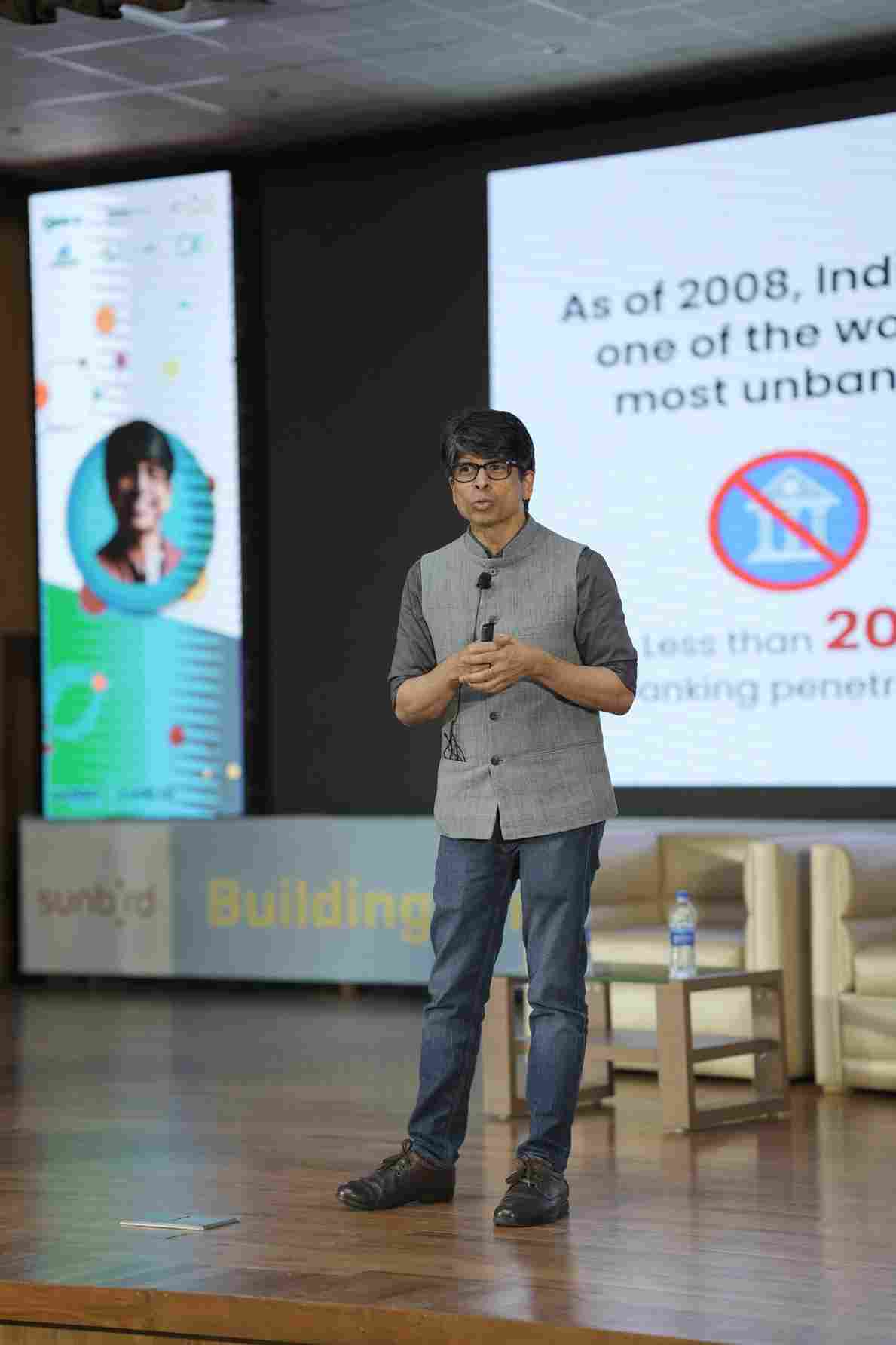Startups have a key role in scaling up digital infra: Ex-Chief Architect of India Stack
Dr Pramod Varma speaks at Digital Public Infrastructure meet of KSUM
Trivandrum / March 14, 2024
Thiruvananthapuram, March 14: Highlighting that the future of India’s digital transformation largely hinges on innovators, Dr Pramod Varma, Former Chief Architect, Aadhaar and India Stack, today said startups have to build and fund product innovations around Digital Public Infrastructure (DPI) to facilitate common people’s life.
Dr Varma was speaking on the scope and opportunities across DPI ecosystem at the ‘The Dawn of DPI’ conclave organized by Sunbird.org in association with Kerala Startup Mission (KSUM) and Gtech MuLearn, at Kerala Arts & Craft Village, Kovalam, here today.
DPI includes digital forms of ID and verification, civil registration, payment, data exchange, and information systems.
Noting that India is making a policy shift in building digital infrastructure with a new scale and speed, Dr Varma said innovators are the driving force of this profound transformation.
He urged innovators and startups, to adopt market innovation and use Digital Public Goods (DPG) -- open-source software with open standards and data, artificial intelligence (AI) models, standards and content-- and protocols within their platforms.
According to Dr Varma, DPI is not different from physical infrastructure and it should create equity and common playground in digital realm.
“Innovators with tech/product skills can join the community and contribute to make an impact. Countries are really reimagining the possibility of a sustainable economic development and India has shown the world how it can be done,” said Dr Varma, who is also the CTO of EkStep Foundation.
Referring to the launch of Hello! UPI app last year, Dr Varma said language is the biggest barrier in UPI transaction and the next biggest India’s AI way is going to be voice-based apps, enabling voice-based payments, which is a powerful way to bring in millions of people under its ambit.
Before 2016, India had less than 50 million people doing digital payment. “But in 2023, we had 500 million people using UPI. It means that more people are now coming into the formalisation of the society,” he said.
Dr Varma recalled that Aadhaar was the fastest to get to a billion people, faster than Facebook or WhatsApp. “Started in 2010, now there are 1.39 billion unique digital ID holders and even today, 70-80 million times Aadhaar is being used everyday,” he observed.
Dr Varma said the success of Aadhaar was that India managed to keep it simple despite its technical difficulties.
“Countries like Mexico and Brazil started along with India but they still haven’t finished the project. When you build infrastructure pieces, you must keep it that extremely simple and generic enough so that entrepreneurs who are building on top of that can build the rest of the features,” he added.
KSUM CEO Shri Anoop Ambika said the spirit of innovation and entrepreneurship has to be inculcated among students and youngsters to foster innovators with good technology skills in DPI sector.
Referring to the Software as a service (SaaS) opportunities for startups in Kerala, Shri Anoop added that we have to trust the innovations while adopting solutions and products from startups.
Shri Anoop informed that the Digital University Kerala is planning to set up a DPI incubator at its campus.
Shri Sreekumar V, Centre Head, Tata Elxsi and Secretary, GTech; Shri Metesh Bhati, Chief Digital Officer, Protean eGov Technologies; Shri Rahul Rishi, EY India Consulting GPS Leader; and Shri Thirumala Arohi Mamunooru, Senior VP, Infosys, Head-Infosys Wingspan, were also present.
Ends




